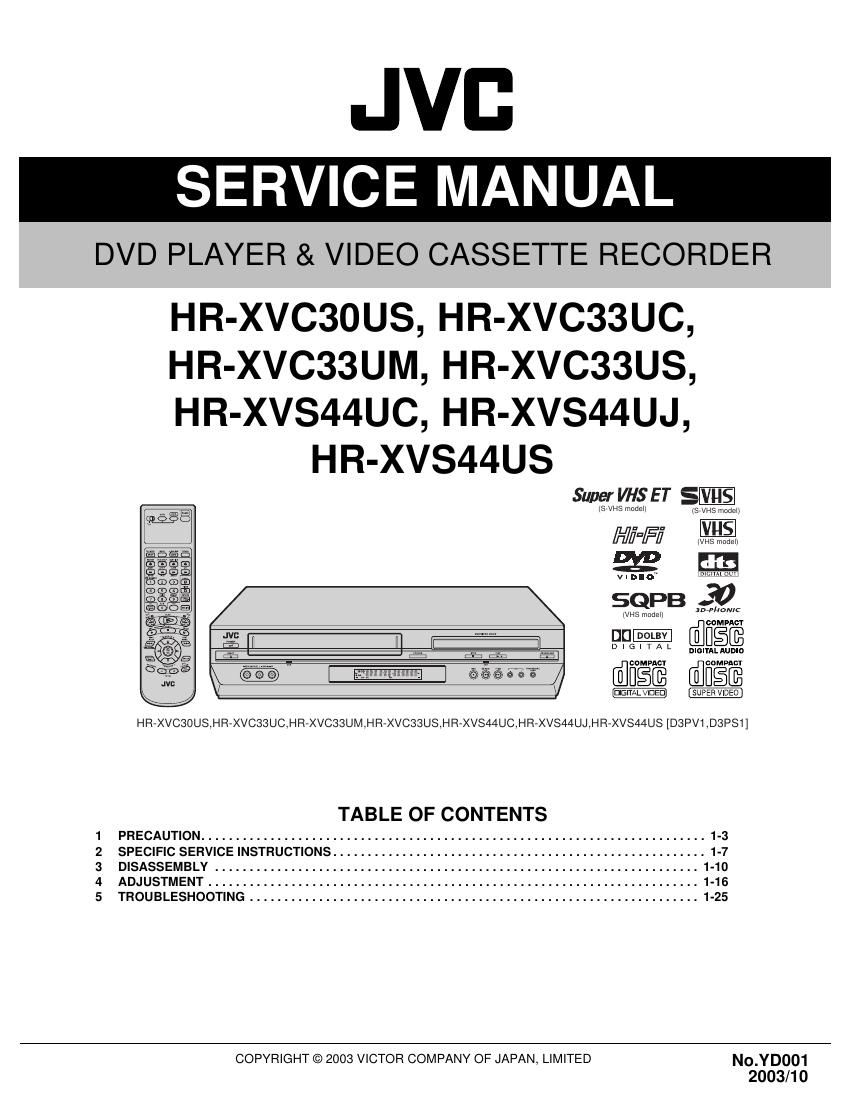Jvc HRXVC 30 UC Service Manual Part 1
This is the 150 pages manual for Jvc HRXVC 30 UC Service Manual Part 1.
Read or download the pdf for free. If you want to contribute, please upload pdfs to audioservicemanuals.wetransfer.com.
Page: 1 / 150
